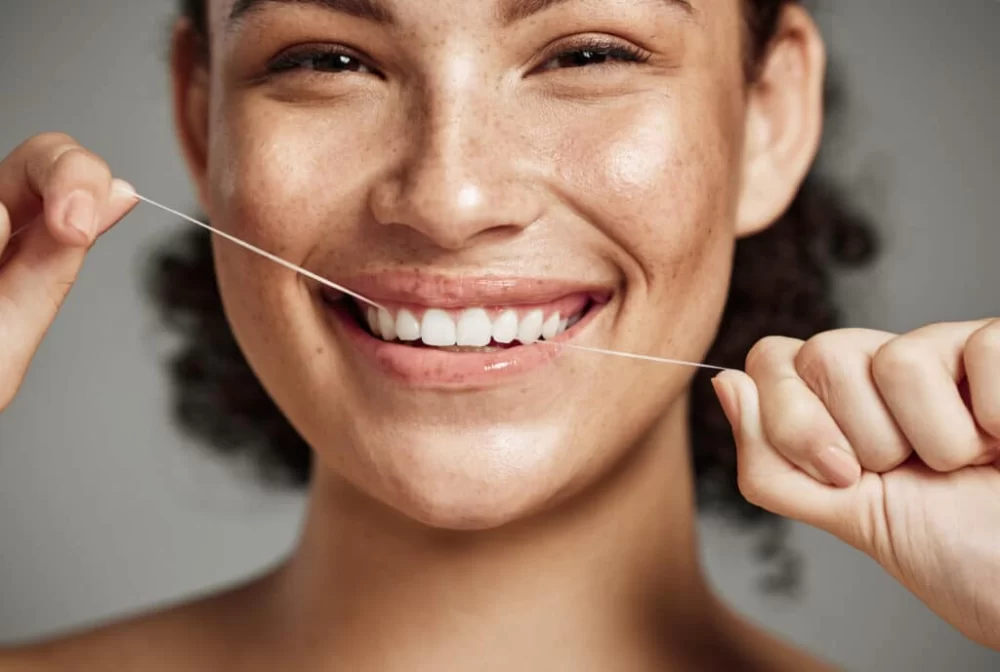
- why-flossing-is-important
- hidden-dangers-of-not-flossing-daily
- science-behind-daily-flossing
- real-stories-how-daily-flossing-changed-smiles
- expert-insights-and-dental-care-recommendations
1. Why Flossing Is Important
Most people brush their teeth daily, but many overlook a crucial part of oral hygiene—flossing. The question “why is it important to floss every day?” is more than just about removing food stuck between teeth. It’s about protecting your entire mouth from long-term damage. Daily flossing helps eliminate plaque and bacteria from areas your toothbrush simply can't reach. These areas—especially between teeth and along the gum line—are the hotspots where oral issues silently develop.
Neglecting flossing can lead to a buildup of plaque, which eventually hardens into tartar and leads to gum inflammation, also known as gingivitis. Over time, this can progress to periodontal disease, one of the leading causes of tooth loss in adults. If you care about keeping your natural teeth and maintaining fresh breath and a confident smile, flossing daily is not optional—it's essential.
2. The Hidden Dangers of Not Flossing Daily
Skipping your daily flossing routine might not seem like a big deal, especially if your teeth "look fine." However, beneath the surface, harmful bacteria are building their army. One of the earliest signs of neglect is bleeding gums. People often mistake this as a sign to stop flossing, when in fact it’s a red flag that you need to start flossing regularly.
Beyond the mouth, poor oral hygiene has been linked to systemic health problems. Studies show that the bacteria from gum disease can enter the bloodstream, increasing the risk of heart disease, diabetes, and respiratory illness. Daily flossing can be a simple, powerful preventive measure that protects more than just your smile.
3. The Science Behind Daily Flossing
When we floss, we mechanically disrupt the formation of bacterial colonies between the teeth. According to the American Dental Association, flossing once a day is sufficient to keep these microbial invaders in check. The key is consistency.
Scientific reviews have consistently shown that flossing in combination with brushing reduces plaque buildup significantly more than brushing alone. Moreover, it minimizes the risk of gum inflammation and helps in maintaining a stable oral pH environment—critical for preventing cavities.
It’s worth noting that not all floss is the same. Depending on the spacing of your teeth and sensitivity of your gums, waxed, unwaxed, or tape-style floss might suit you better. At Dentistry Toothtruth, we can help guide you to the right dental floss for your unique needs and preferences.
4. Real Stories: How Daily Flossing Changed Smiles
Take the case of Maria, a 34-year-old graphic designer who avoided flossing for years. She thought brushing twice daily was enough—until her dentist found early signs of gum disease. After committing to a daily flossing routine, her next check-up showed significant improvement. “My gums stopped bleeding and my breath improved,” she said. “I didn’t realize how much I was missing by not flossing.”
Or consider Jason, a retired firefighter who developed halitosis despite regular brushing. His dental hygienist discovered that food debris stuck between his molars was the culprit. A simple change—adding flossing to his nightly routine—resolved the issue within weeks.
These aren't isolated cases. They're everyday examples of how something as quick as a two-minute flossing habit can make a lasting impact.
5. Expert Insights and Dental Care Recommendations
Dental professionals agree: flossing is a non-negotiable part of oral health. According to Dr. Linda Freeman, a practicing periodontist with over 20 years of experience, “You can’t clean 40% of your tooth surfaces if you skip flossing. It’s like washing only three-quarters of your body.”
She recommends using gentle technique—sliding the floss along the tooth's curve and under the gum line—rather than snapping it straight down, which can damage tissue. And for those who find traditional floss inconvenient, there are alternatives like floss picks, water flossers, and interdental brushes.
At Dentistry Toothtruth, we not only provide curated flossing products tailored to your dental profile but also offer consultations to help you build a sustainable oral hygiene routine. Whether you’re dealing with braces, sensitive gums, or just starting to floss seriously, we’re here to support you.







 Reflections Dental Care4.0 (231 review)
Reflections Dental Care4.0 (231 review) Dental Arts of Totowa4.0 (80 review)
Dental Arts of Totowa4.0 (80 review) Pasadena Dentist Smile Now Dental4.0 (43 review)
Pasadena Dentist Smile Now Dental4.0 (43 review) Portland Pearl Orthodontics4.0 (65 review)
Portland Pearl Orthodontics4.0 (65 review) Mark C Svore & Associates4.0 (22 review)
Mark C Svore & Associates4.0 (22 review) Redwood Orthodontics4.0 (210 review)
Redwood Orthodontics4.0 (210 review) The Importance of Oral Health Education During Pregnancy for a Healthy Pregnancy
The Importance of Oral Health Education During Pregnancy for a Healthy Pregnancy Best Tips for Brushing Your Teeth Properly for Healthy Gums: Essential Techniques for Oral Health
Best Tips for Brushing Your Teeth Properly for Healthy Gums: Essential Techniques for Oral Health Why Skipping Dental Checkups Can Lead to Bigger Oral Health Problems
Why Skipping Dental Checkups Can Lead to Bigger Oral Health Problems Advantages of Porcelain Dental Restorations
Advantages of Porcelain Dental Restorations How Can Diabetes Cause Tooth and Gum Problems? Preventing and Managing Oral Health Issues
How Can Diabetes Cause Tooth and Gum Problems? Preventing and Managing Oral Health Issues Healthy Habits for Promoting Good Oral Health and Hygiene: Tips for a Healthy Smile
Healthy Habits for Promoting Good Oral Health and Hygiene: Tips for a Healthy Smile